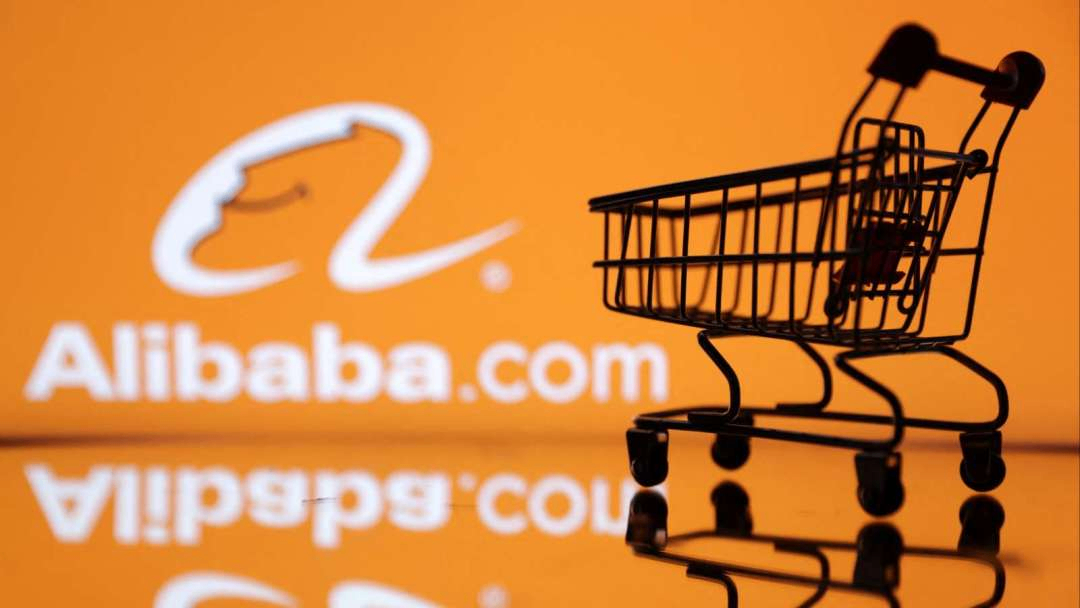Aim for the European Cup! Ali's AliExpress signs Beckham as brand ambassador
AliExpress, an international e-commerce site owned by Chinese e-commerce giant Alibaba, is understood to have signed former Manchester United and Real Madrid star David Beckham as a brand ambassador.
AliExpress, an international e-commerce site owned by Chinese e-commerce giant Alibaba, is understood to have signed former Manchester United and Real Madrid star David Beckham as a brand ambassador.
AliExpress is targeting the European Championship
Earlier this year, AliExpress signed as a sponsor for the 2024 European Championship, which will begin in June, and will invest millions of dollars in discounts, discounts, and interactions to attract online consumers.
AliExpress stated in a statement on Monday that Beckham's advertising campaign will take place simultaneously with the European Championship and encourage consumers to purchase more products through AliExpress.
Alibaba's move is believed to be an attempt by the company to emulate its competitor, Temu under Pinduoduo.

Previously, During the Super Bowl event in the United States, Temu successfully aired multiple commercial advertisements with the slogan "shop like a billionaire" that left a deep impression on American audiences. According to data from mobile intelligence company Apptopia, after airing in the Super Bowl advertising department, The download volume of Temu has surged by 34% compared to the previous day.
Humphrey Ho, the US managing partner of digital advertising agency Hylink Digital, said of Temu and AliExpress's simultaneous focus on football fans, "Football fans in Europe and Latin America are roughly the same as American football fans in North America, and they typically include many price sensitive and inflation affected consumers."
Cross-border e-commerce pattern surging
At present, Alibaba's market share in China is constantly being eroded by competitors such as Pinduoduo and JD.com. In order to find new growth points, Alibaba has had to start paying attention to its overseas e-commerce business. Currently, Alibaba's international division (including AliExpress) is its fastest-growing division. According to Alibaba's financial report, its international digital business group's revenue increased by 45% year-on-year in the first quarter of this year.
Alibaba has laid out its cross-border e-commerce business earlier than Pinduoduo and TikTok, and has achieved good results in Asia (especially in Southeast Asia), the Middle East, and other places through years of cultivation. Previously, Alibaba had been relatively low-key in cross-border business. But seeing Pinduoduo's Temu develop so rapidly, TikTok is also eyeing from the side, and Alibaba cannot sit still. It is investing heavily to promote global sales.
Temu was launched in September 2022 in the United States and was a pioneer in Pinduoduo's overseas expansion, quickly gaining a large number of consumers with a low price strategy. Since its launch, Temu has rapidly expanded its business scale thanks to Pinduoduo's advantages in supply chain and marketing.
In just a few weeks of launch, Temu has topped the list of app stores in the United States, followed by rapid expansion in multiple countries such as Australia, the United Kingdom, and Europe. Currently, its footprint has spread to more than 60 countries worldwide. CICC estimates that, Temu's revenue is expected to reach $18 billion in 2023. Pinduoduo did not separately disclose Temu's revenue in its financial report, nor did it comment on the accuracy of third-party sales estimates.
Comparing the performance of Alibaba and Pinduoduo last year, it can be found that although Alibaba's revenue is more than three times that of Pinduoduo, Pinduoduo's growth rate is nearly nine times that of Alibaba. Over time, Alibaba will be overshadowed by Pinduoduo.
In addition, TikTok, which holds huge traffic, has always been ambitious for the e-commerce industry.
Last September, TikTok Shop has officially landed in the US market. Last November, driven by Black Friday and Cyber Monday, over 5 million new American users flooded into TikTok to place orders. Southeast Asia is also the main battlefield for TikTok's efforts. According to public information, as of December last year, TikTok's Southeast Asian GMV has exceeded 13 billion US dollars, with Indonesia exceeding 4 billion US dollars and Thailand around 3.5 billion US dollars.
Although TikTok's e-commerce scale is still relatively small, due to its huge traffic, it has always been feared by other e-commerce software, and Alibaba is no exception.
In order to better compete with competitors, Alibaba is leveraging its advantages and plans to provide five-day delivery services for selected products in over ten markets through investments in global logistics.

Li Jianggan, founder and CEO of venture capital and insight firm Moton Venture Capital, compared AliExpress to Temu and said, "From a historical perspective, execution has always been a challenge for Alibaba to achieve its internationalization ambitions." He believes that "Alibaba has been debating for many years whether competing with Amazon (in the United States) is too difficult or too challenging, and Temu has bravely taken this step."
Li Jianggan stated that Alibaba has the willingness and funds to drive the growth of global AliExpress, but most importantly, the competitive landscape is forcing Alibaba to make this decision and change the landscape of China's cross-border e-commerce.
Alibaba has always regarded overseas markets as potential profit opportunities, and its founder Jack Ma stated in 2017 that Alibaba's goal is to serve 2 billion global consumers by 2036. But as competition intensifies year by year, Alibaba must now increase its investment in more markets in order to not fall behind its competitors.
"AliExpress must find a way to compete and differentiate from Temu in order to win market share," said Li Jianggan. "What I mean is, there are no other options."
·Original
Disclaimer: The views in this article are from the original Creator and do not represent the views or position of Hawk Insight. The content of the article is for reference, communication and learning only, and does not constitute investment advice. If it involves copyright issues, please contact us for deletion.